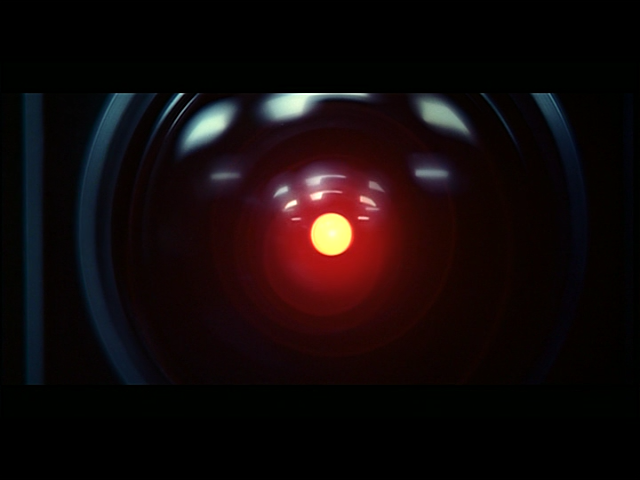What? Why would you choose that over Baptist Church of Missouri SynodOS, you heretic?
RickRussell_CA
was RickRussellTX @ reddit
- 1 Post
- 120 Comments

 1·23 days ago
1·23 days ago“Main Quest”. What does that even mean? That’s nonsense.

 92·24 days ago
92·24 days agoThe idea that anyone finishes a game of Civilization is a myth.

 2·1 month ago
2·1 month agoSo I’m getting a bit fascinated by this question, because I can do practical tests – I’ve owned CD-Rs since the format was invented w/ the original Pinnacle SCSI CD writers circa 1994.
I don’t think I have any CD-Rs that old any more, but I definitely have many from that era. Just for the heck of it, I popped an azo CD-R in my drive that I wrote in 1998, and I happen to have a hard drive copy of these files that I’ve carried forward on hard disks since that time as well (the CD-R was a backup).
I think the files are still in perfect condition – was able to copy w/ verify all 360MB of MP3s (and yes, before you ask, I was making MP3s in 1998 using the Fraunhofer DOS command-line encoder), and compare them to my hard drive copies which show matching SHA512 hashes.
If I’m still around 25 years from now, I’ll try again :-)

 1·1 month ago
1·1 month agoYou claim induced me to do a little tidying on my CD collection. I just copied the oldest data CD that I own: the Hugo & Nebula Anthology 1993. It copied & verified no problem.
Unfortunately, that’s probably the oldest proper test I can do. Although I was using CD-ROMs as early as 1986, e.g. in libraries, I didn’t own any music or data CDs until about 1990. I could re-rip some of those old music CDs, I suppose, but I’m not sure it would tell us much as I’m not sure how to do a bit-for-bit comparison and I certainly don’t want to listen to the files.


 5·1 month ago
5·1 month agoI have many 30 year old CDs. They’re fine. They’ve just been kept in a typical home storage environment. I just ripped a Toad the Wet Sprocket CD I bought in 93.

 2·1 month ago
2·1 month agoI kept the CDs for a while, much to my wife’s annoyance, before donating them to a local charity
I took them out of the jewel cases and put them into a binder, 4 CDs per page. It hasn’t exactly been a burden to carry it around for the last 20 years.
I couldn’t tell you how old my oldest MP3s are, except to say that a significant portion of my music library consists of MP3s I made myself with the Fraunhofer DOS command line encoder, and the Cassady & Green SoundJam software for MacOS. Of course, SoundJam is the software that Apple purchased and re-badged it “iTunes”.

 17·1 month ago
17·1 month agoThe whole process is much less authentic.
I remember reading a letter to the editor in Stereophile magazine 30 years ago, when tube amps were coming back into style after decades of transistor and semiconductor amps. The reader pointed out that the language used in a review to describe the benefits of tube amps was ridiculous, and that calling the output “warm” or “intimate” (or dare I say, “authentic”) compared to semiconductor amps was simply an admission that the tube amps were making a change to the audio output that was not part of the original recording.
The function of an audio reproduction and amplification system, the author pointed out, was to reproduce the audio signal as accurately as possible to capture the content of the original recorded signal. Full stop. Anything else is nonsense.

 9·1 month ago
9·1 month agoThe fact that CD sales are behind vinyl is a sign that the world has gone mad.
I mean… CD sales are only behind vinyl because vinyl has become collectible, while CDs offer no practical advantage over stored files on a hard drive or high-quality streaming.
And before you say, “but what about compression?”, the fact is that even lossy compression is good enough that most audiophiles can’t tell the difference. Audiophile publications started doing blind comparisons back in the 90s, and it quickly became clear that somewhere around 192kbps MP3 the ability of humans to statistically discern the compressed vs. uncompressed versions started to disappear.

 881·2 months ago
881·2 months agoIs this controversial? You’re paying for the storefront.

 16·3 months ago
16·3 months agoPerhaps worth noting, there was a SCOTUS decision in the early 2000s (New York Times Co. v. Tasini) that held that freelance journalists whose contracts did not specifically include an electronic distribution clause were entitled to damages when those articles were subsequently released on the web and to electronic news services like Lexis/Nexis.
Big publications like the NYT came to settlements that allowed them to pay to redistribute the older articles (by paying the original authors), but smaller publications may not have such a settlement structure in place and may not be allowed to redistribute the original articles without additional permissions.
FYI, I have a copy of the Dragon Magazine Archive CD-ROM version that came out in 2001… only to immediately disappear off the market for this very reason!

 8·4 months ago
8·4 months agoI’d call it a Chaswozzer.
Misinterpreting contextually appropriate diction is not pedantry.

 10·5 months ago
10·5 months agoThis is why customer service folks often keep a mirror by the phone, looking at their own faces helps to keep their emotions in check when dealing with a difficult customer.

 1·5 months ago
1·5 months ago“This MIT-trained engineer left a big plumbing company so he could disrupt the market with an innovative product”

 1·5 months ago
1·5 months agoIn a more perfect world, people would demand union representation, and flee from “right to work” (anti-union) states.
Unfortunately the billionaires have used millions to convince the thousandaires that the hundredaires are the real threat.

 3·5 months ago
3·5 months agoBut we already know the answer to that question.

 3·5 months ago
3·5 months agoI wonder if they still make that shampoo I like?



Currently, PopOS although I’m not really that enthusiastic about it.